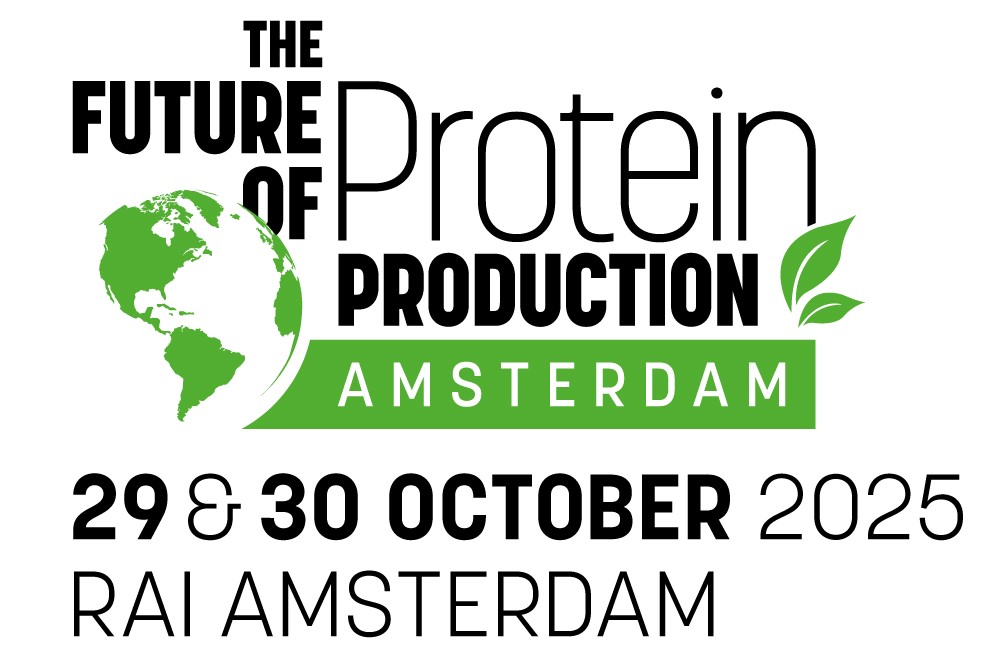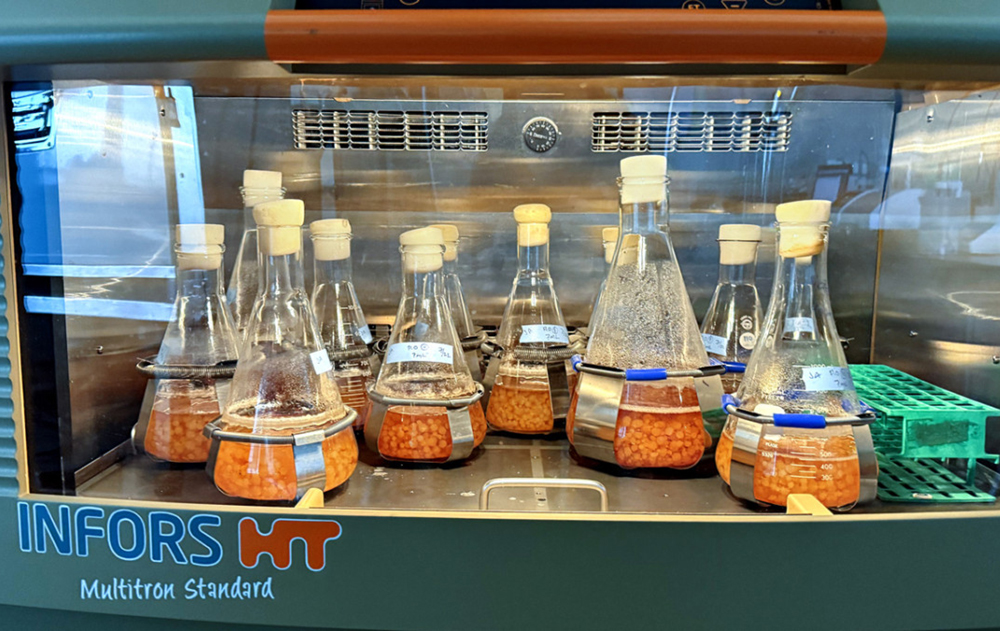

FPP Amsterdam 2025 Speaker Interview: Get your analytics right for the future bite
At RIC, Group Lead Emmie Dumont and her team are bringing pharma-grade precision to food-tech. From detecting trace contaminants to decoding protein structures and aromas, their advanced analytics are helping novel food developers prove safety, quality, and consumer trust – molecule by molecule.
Novel foods may be grown in bioreactors instead of fields or oceans, but their success still depends on the same thing as any traditional food: trust. For Emmie Dumont at RIC, that trust is built molecule by molecule, with chromatography and mass spectrometry revealing whether a product is safe, consistent, and ready for market.
“RIC assists to ensure that products are both safe and appealing,” said Dumont, Group Lead at RIC. “From verifying residual substances to aroma profiling, our analytics can cover a lot.”

RIC resolve is the brand through which RIC group delivers its food-tech expertise, bringing decades of analytical experience into one of the most dynamic frontiers of protein production.
RIC group is a private, independent company with roots in analytical chemistry. Its services stretch from method development and contaminant monitoring to full-scale product characterization. “We’re currently a team of over 80 science enthusiasts with broad scientific expertise and technical know-how,” Dumont explained.
The company’s work spans diverse industries – food, (bio)pharma, agritech, environmental science, and petrochemicals – but its philosophy is consistent: to provide rigorous answers to complex analytical questions. That ethos has naturally found fertile ground in the emerging alternative protein sector.
“In the field of novel food, we have been active in analyzing cultivated meat and fish and samples resulting from precision fermentation,” said Dumont. “We ensure that products are both safe and appealing.”
RIC’s services are not limited to contract analysis. The company also supplies instruments pre-loaded with its own methods and offers customized training for scientists. Education, Dumont stressed, is part of the mission.
Why novel foods need advanced analytics
Novel food developers are tackling some of the most complex matrices in the food industry. Unlike traditional food systems, which have standardized ingredients and centuries of regulatory precedent, cultivated meat and precision fermentation proteins involve unfamiliar growth media, engineered host cells, and fine-tuned production environments.
“Many of the requirements cannot be fulfilled by standard measurements,” said Dumont. “They require specialized analysis, development, and testing. Other processes, materials, and chemicals are involved, all leading to the complexity of the product and its characterization – the perfect match and challenge for chromatography and mass spec lovers.”
For RIC, this complexity is not a barrier but an invitation. Its expertise in chromatography and mass spectrometry, sharpened over years in pharmaceuticals and biotechnology, transfers naturally into food-tech. From contaminants to protein structure, the same rigor that underpins drug development can ensure safe, high-quality foods.

From raw materials to finished products
RIC’s work begins at the earliest stage of the food production chain: raw material screening. Using liquid chromatography coupled to high-resolution mass spectrometry (LC-MS), the company can detect contaminants, evaluate quality differences between batches, and identify the molecular root cause of yield fluctuations. “Different batches or raw materials from different suppliers can be compared, allowing us to determine the best candidate,” said Dumont. The outcome is not only safer but more efficient production.
Nutritional analysis is another pillar. Proteins, fats, amino acids, and vitamins can all be quantified, even in highly complex matrices. That matters not only for labeling but also for benchmarking novel foods against conventional counterparts.
Food fraud and adulteration remain pressing concerns. High-end analytics, Dumont argued, are essential for tracing falsifications and ensuring consumer trust – especially in a sector where skepticism remains common.
Monitoring the invisible
One of RIC’s most critical contributions is in monitoring trace substances that can make or break a novel food’s regulatory pathway. In cultivated meat and precision fermentation, bioreactors often require additives such as antifoams, growth factors, (phyto)hormones, or antibiotics to optimize yields. These substances must be monitored at ultra-low levels in the final product.
“At RIC we have developed multiple methods to cover the needs for regulation, but there is still more to explore,” said Dumont. RIC’s LC-MS/MS assays can detect residuals at trace levels, providing both producers and regulators with confidence that products meet safety thresholds.
This kind of testing is not optional. For the alternative protein sector to achieve mainstream adoption, it must demonstrate not only novelty but reliability. Analytics provide the backbone of that trust.
web.jpg)
Structural characterization for functional proteins
Precision fermentation promises animal proteins without animals – think casein for dairy, ovalbumin for eggs, or collagen for gelatin. But to succeed, these proteins must not only be safe but also functionally identical to their animal-derived versions.
Here, RIC draws on two decades of biopharma expertise in protein characterization. “Proteins from precision fermentation need to possess the same functions and characteristics, which can be elucidated through in-depth structural characterization,” said Dumont.
Through LC-MS intact mass analysis and peptide mapping, the company can reveal molecular weight, amino acid sequence, protein identity, integrity, heterogeneity, and post-translational modifications. In practice, this means demonstrating that a recombinant casein will behave like dairy casein in cheese-making – an essential step for both product performance and regulatory approval.
The aroma dimension
While safety and functionality are crucial, consumer perception ultimately decides whether a product succeeds. Aroma, though only a tiny fraction of a food’s composition, plays an outsized role. “Aroma profiling takes a central role within novel food,” Dumont emphasized. “Its impact on market value and consumer approval is crucial.”
Using gas chromatography (GC)-MS workflows, RIC conducts detailed aroma profiling to ensure products deliver consistent sensory experiences. The same tools can detect off-flavors at ultra-trace levels or compare novel foods against conventional benchmarks. Aroma analysis even aids in detecting counterfeit products – a reminder that as the sector grows, so too does the risk of fraud.
For cultivated meat and precision fermentation, aroma is not merely about taste. It is about legitimacy. Consumers will only accept these foods if they smell, cook, and taste as expected.
A culture of curiosity
What makes RIC tick, according to Dumont, is curiosity. “With almost 40 years of experience in analytics across various domains, we’ve built a large expertise and wide portfolio for analyzing different compounds in very diverse matrices,” she said. “That is exactly what novel food customers need.”
The excitement of working at the frontier is part of the appeal. “Being at the forefront of something new and exciting is what triggers us,” Dumont reflected. “Going that extra mile to meet the needs of the customers and supply them with answers is what motivates us.”
With almost four decades of supporting customers with analytical challenges in food and biopharma, entering the novel food market was a logical next step. The company’s track record underscores how transferable pharma-grade tools are to the food-tech domain.
Yet Dumont is clear that much remains unexplored. The sector is evolving quickly, with new proteins, processes, and regulatory frameworks emerging. Analytics will need to keep pace. “Although many analytical challenges are already covered, there is still a lot to explore in terms of analytics for novel food – and that’s what keeps us going,” she said.
As the company prepares to showcase its capabilities at The Future of Protein Production Amsterdam on 29-30 October 2025 (Stand 58), Dumont offered a succinct invitation: “Get your analytics right for the future bite.”
Emmy Dumont is one of more than 100 speakers taking to the stage at The Future of Protein Production Amsterdam on 29/30 October 2025. To join her and more than 1,000 other attendees, book your conference ticket today and use the code, 'PPTI10', for an extra 10% discount on the current rate. Click here
If you have any questions or would like to get in touch with us, please email info@futureofproteinproduction.com

.png)






